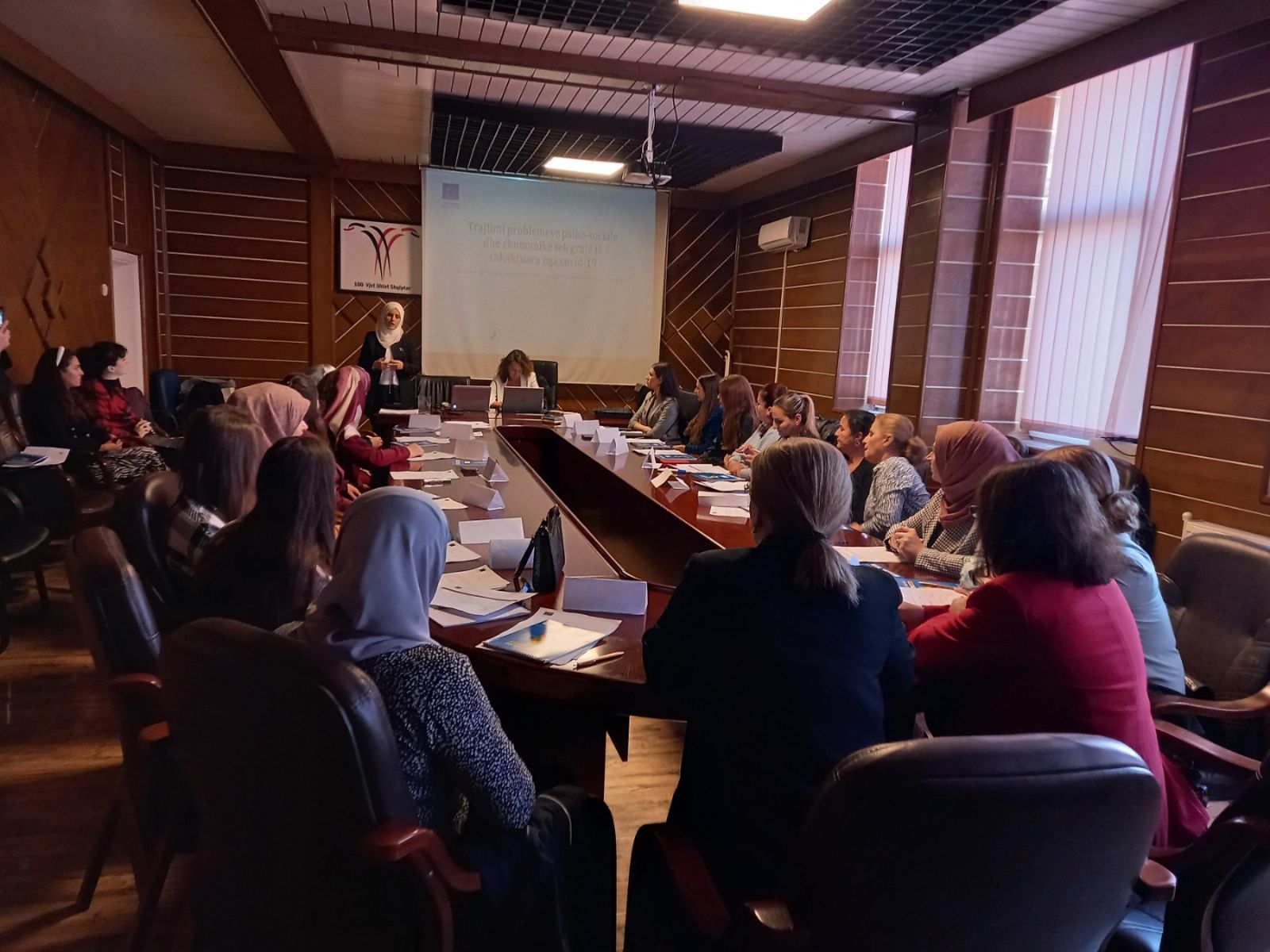Dozens of girls and women of Hani i Elezit have been informed on how to tackle the psycho-social and economic problems due to Covid-19 isolation.
On 30 September, the Kosovo Women’s Network (KWN) member organization, Institute for Dialogue and Non-Discrimination (Instituti për Dialogu dhe Mosdiskriminim) held a workshop within the initiative “Treatment of psycho-social and economic problems in women caused by the Covid-19 pandemic,” financed by the Union European and supported by KWN.
The initiative aims to inform women and contribute to a comfortable environment for a normal life for women by preventing gender-based violence and easing other consequences of COVID-19.
Rovena Tujani Klinaku head of the Institute for Dialogue and Non-Discrimination said that the project aims to raise awareness about these issues for all women throughout Kosovo.
“The first part deals with psycho-social treatment and consequences of distress, anxiety, depression. The second part is about free legal advice, which includes the categories of domestic violence advice, i.e. gender-based violence, physical, psychological, sexual and economic violence”, Tujani Klinaku said.
She said that most women don’t have so much information about “economic violence.”
“Regarding economic violence, we talked about divorce cases, inheritance. We can say a very large percentage, over 70% of women, do not have the basic information”, Tujani Klinaku emphasized.
“Some of them think that if they are not married they have no financial rights, or if there are no child heirs in their family they are not beneficiaries.”
Elma Myftari, a clinical neuropsychologist, said that during the pandemic a lot of disinformation happened during the pandemic.
“Information related to COVID-19 was mainly obtained from inaccurate sources of information. This led to the complication of the situation for treatment, for rehabilitation and for the post-COVID phase, which ended the pandemic as soon as possible”, she explained.
Kimete Kuka, Director of Health and Social Welfare in the Municipality of Han i Elez, said that the lack of health staff complicates the situation. There is no psychologist in the schools in Han i Elezit.
Sara Berisha said that as a student she had challenges during the pandemic and quarantine.
“It was a very good meeting that I believe we needed as women. I learned a lot about mental health, also about psychologists, psychiatrists, and I think that every person who needs it should go to be visited without hesitating or having any complexes” – said Berisha.
This project is supported by the Kosovo Women’s Fund with the support of the European Union Office in Kosovo through the initiative of the Kosovo Women’s Network “Raising capacities
and sustainability of CSOs: Advancing gender equality in the midst of a pandemic COVID-19″.
This project is supported by Kosovo Women’s Fund (KWF) within the KWN initiative, “Enhancing the Capacities and Resilience of CSO’s: Furthering Gender Equality Amid the COVID-19 Pandemic”, financed by the European Union (EU) in Kosovo.







